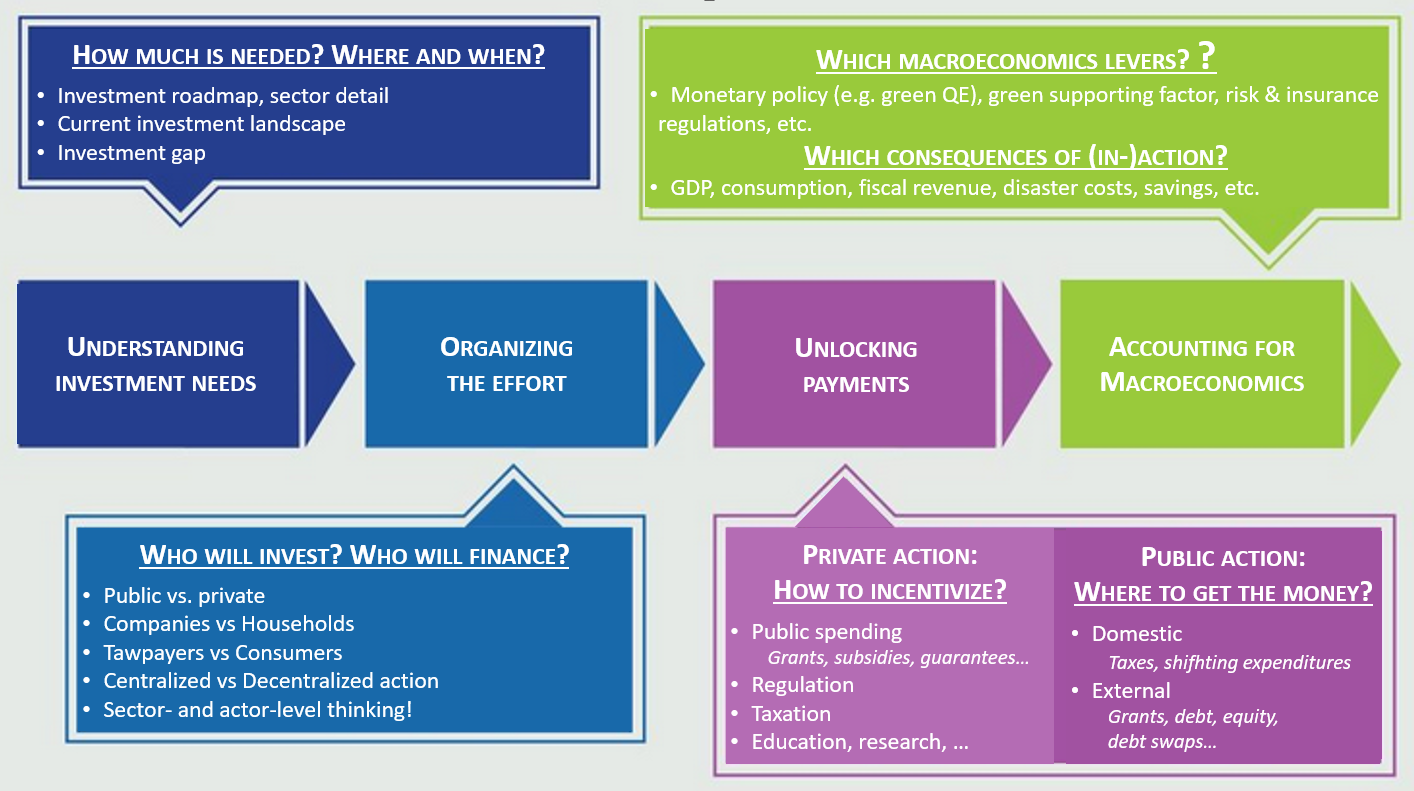Transition financing plans: discussing international experience
Context
Financing plans are a critical tool for governments to achieve climate objectives. Such plans support the operationalisation of Nationally Determined Contributions – (NDCs) and long-term climate strategies – by providing answers to key questions such as: how much investment is needed, where and when? What will be the respective roles of the public and private sector, of domestic and international funders? How to incentivize private action, how to fund public action? which domestic and international sources of funding can be mobilized to fulfil additional spending needs?
Such plans are instrumental for the transition for at least three reasons:
- They help establish a country-driven consensus. Designing them requires a clear understanding in the ministry of finance and/or planning of how national climate goals translate into investment needs. It also requires a broad discussion with line Ministries, project promoters, and national and international investors and donors.
- They reconcile climate and development goals in a whole-of-economy approach. This integrated perspective guarantees just transition related issues will be given due attention and limits the risks of a disordely and costly transition.
- They include short and medium-term public spending targets within a more systemic view which encompasses regulation, private action, domestic resources, and international finance. This gives a clear signal to the private sector as to where public efforts should be supplemented or completed and makes it easier to attract and channel external funding to where it is needed so governments can focus their own resources on harder-to-fund priorities.
Financing plans: key building blocks

Objectives
This project aims to:
- Support awareness among Ministries of Finance, and in particular Budget Offices, of the importance of mirroring long-term climate strategies with short- and medium-term trajectories for state expenditure.
- Review existing experience with financial planning for the climate transition. Provide insights on overcoming the most critical barriers to developing effective, country-level financing plans.
- Stimulate and facilitate peer-to-peer exchange. As financing plans are still relatively nascent practices with limited experience to draw from, we feel that this conversation is necessary to rapidly and collectively gain expertise on what will be in the near future one of the fundamental conditions for the success, or failure, of transition plans.
- Support the emergence of similar tools and dynamics, adapted to country-specific contexts. In particular, create diagnostic and discussion tools to support interministerial discussions around how to finance national long-term climate strategies.
The desired outcome is that countries develop comprehensive and integrated approaches regarding the funding and financing of climate strategies, that inform both internal decision-making and reporting, as well as negotiations with international partners.
Want to learn more? Watch this webinar, which begins by explaining the fundamentals of green budgeting and provides practical examples from the City of Paris. The second part highlights the limitations of green budgeting and explores the benefits of developing a “climate financing plan.


